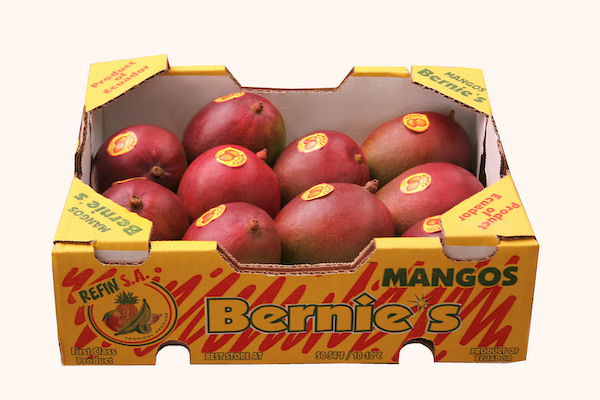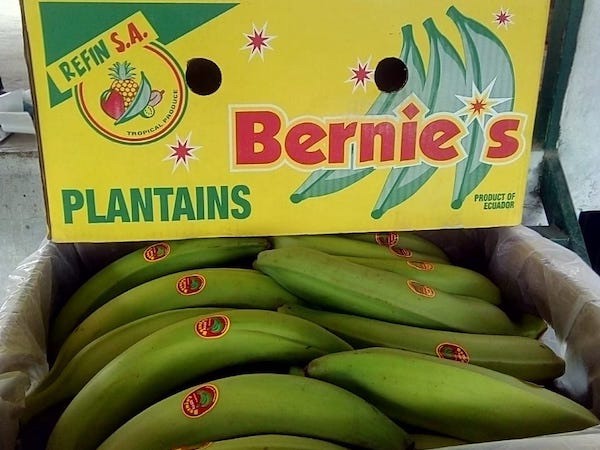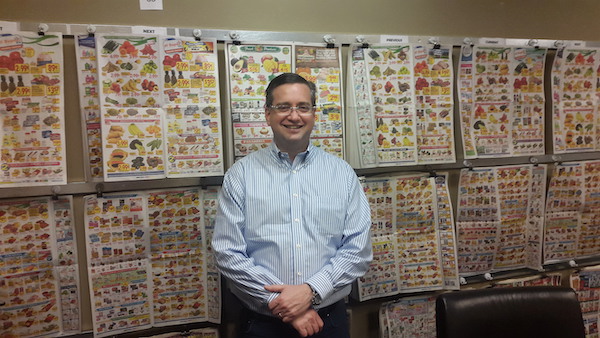“The effects of the pandemic on the industry depends on the nature of the product,” is what Ecuadorian grower and shipper Bernardo Malo of Refin S.A. says. The company grows and exports green plantains and tropical roots 52 weeks of the year, as well as exporting mangoes from October through December. The company’s biggest export market is in the US, but they also export to Chile, Central America, Mexico and some European countries.
“Our products are a staple in many Latin and ethnic communities, and so for us the demand hasn’t been affected much by the pandemic. For the mangoes it remains to be seen when our season starts in a few months. From what we’ve seen from the Mexican season that is running right now, the mangoes are moving relatively well so we’re optimistic about what the demand might be like. Most of the mango volume goes by boat and as such no big surprises are to be expected, however the situation for air freight transportation is still too uncertain to forecast,” Malo shares.

The company's mango season will start in October.
Logistical challenges caused by the pandemic
The green plantains and tropical roots are transported by ocean freight, and there’s been a few challenges there as well, Malo says. “There’s been a lack of labor because of people who are sick, or because they are afraid to come into work. The rotation of services was also impacted because of this. Additionally, because there were less shipments to specific destinations due to the pandemic, this caused a limited number of available units to use for shipments. This caused certain services to be stopped or rescheduled,” he says.
For the company’s products, there has been a slight distortion between supply and demand in the market, especially at the beginning of the pandemic. “The supply was a bit erratic: really high supplies at one point, then, not soon after, the supplies had been reduced to almost none. The prices acted accordingly, going up and down along with the supply,” says Malo.

The market has now returned to more normal patterns, says Malo. “The heaviest of it was during April and May but in the past month and a half, everything has become more reasonable and is starting to look more normal. It’s too early to conclude what the mid-to-long term impact will be on the demand, especially with companies going out of business everywhere as a result of the situation,” he explains.

Bernardo Malo, CEO and President of Refin S.A.
Normal plantain supplies
Refin S.A. produces plantains and tropical roots year-round, as well as growing mangoes and a small amount of limes. “We also have solid partnerships with associated growers who we support year round in order to achieve the best results in many ways”, Malo states. He also observes that the consumption trends among each of these products have been similar. “For the mangos, taking into consideration that there’s limited foodservice & wholesale outlets, the demand has been pretty good in the Mexico season from what we’ve heard. For the green plantains and the tropical roots, the core consumers will continue to purchase these because they’re staple items among certain groups of people,” he says.

While the demand and pricing has been seeing more extreme fluctuations than usual due to the pandemic, the green plantain supply has been steady in Ecuador. Malo says: “During the first half of the year, the production is higher than the second half. Now, production is starting to slow down a bit and volumes are lower but fortunately we’ve had no issues with inconsistent supplies for our green plantains.”
“At Refin, we work to constantly improve so that we can comply with the increasingly demanding markets. We have a big focus on the food safety and food agricultural practices for our products. The majority of our products is global gap certified and some of it is Rainforest certified too, which is something that we take very seriously; it’s the future of the produce industry,” Malo concludes.
 For more information:
For more information:
Bernardo Malo
Refin S.A.
Tel: +593 4 600 0224
Email: bmalo@refintropicals.com
www.refintropicals.com
